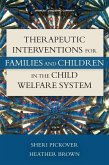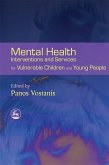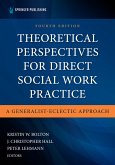Blends practitioner-focused and culturally responsive interventions to provide an innovative approach to learning
With the aim of transforming flawed child welfare practices and policies into a more equitable system, this comprehensive, practice-based text delves into contemporary child welfare practice from antiracist, social justice, and decolonial perspectives. Incorporating first-hand knowledge of day-to-day practice, the book examines the many roles of professional child welfare workers, foundational skills they need to work in the field, the challenges and promises of trauma-informed practice, how to maintain a dedicated workforce, and strategies for reshaping the system.
This book covers child welfare practice thoroughly, from reporting to investigating and everything in between. It also explores relevant policies, signs of abuse/neglect, building relationships, anti-racist approaches, and the importance of cultural sensitivity. Throughout, it emphasizes the trauma experienced by children and families involved in the system and the impact on child welfare professionals. Learning objectives, reflection boxes, discussion questions, and additional resources are included in every chapter to provide opportunities for students to apply concepts. Additionally, case studies in most chapters offer practical applications to real-world situations. To accompany the book, qualified instructors have access to an Instructor Manual, Sample Syllabus, Test Bank, chapter PowerPoints, and supplemental videos covering topics such as careers, engagement, and foster care.
Key Features:
With the aim of transforming flawed child welfare practices and policies into a more equitable system, this comprehensive, practice-based text delves into contemporary child welfare practice from antiracist, social justice, and decolonial perspectives. Incorporating first-hand knowledge of day-to-day practice, the book examines the many roles of professional child welfare workers, foundational skills they need to work in the field, the challenges and promises of trauma-informed practice, how to maintain a dedicated workforce, and strategies for reshaping the system.
This book covers child welfare practice thoroughly, from reporting to investigating and everything in between. It also explores relevant policies, signs of abuse/neglect, building relationships, anti-racist approaches, and the importance of cultural sensitivity. Throughout, it emphasizes the trauma experienced by children and families involved in the system and the impact on child welfare professionals. Learning objectives, reflection boxes, discussion questions, and additional resources are included in every chapter to provide opportunities for students to apply concepts. Additionally, case studies in most chapters offer practical applications to real-world situations. To accompany the book, qualified instructors have access to an Instructor Manual, Sample Syllabus, Test Bank, chapter PowerPoints, and supplemental videos covering topics such as careers, engagement, and foster care.
Key Features:
- Informed by real-world experience demonstrated through case studies, reflection boxes, and discussion questions
- Weaves antiracist, social justice, and decolonial perspectives throughout and includes the viewpoints of diverse voices from the field
- Provides extensive coverage of trauma-informed practice
- Devotes a separate chapter to the unique issues of foster children in school settings
- Connects content to the 2022 Educational Policy and Accreditation Standards from the Council on Social Work Education
- Covers a broad range of career opportunities for child welfare workers in myriad settings
Dieser Download kann aus rechtlichen Gründen nur mit Rechnungsadresse in A, D ausgeliefert werden.









